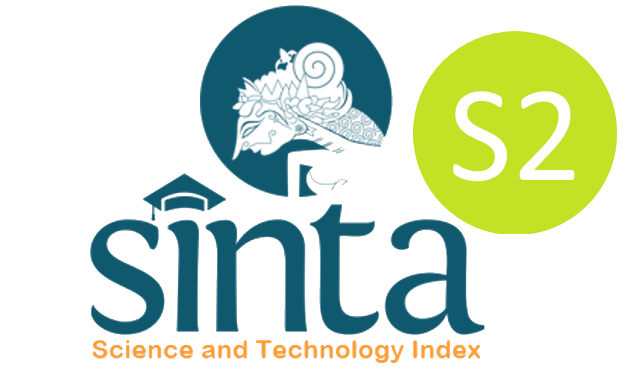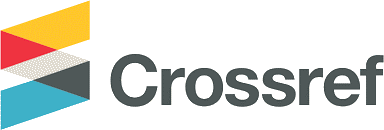Article Title
Keep Your Litter in the Loop: Predicting Generation Z’s Intention to Recycle Single-use Plastic Waste
Abstract
The introduction of single-use plastic into modern daily life has created an alarming number of plastic-waste in Indonesia. Government policies and social movements efforts to reduce and manage single-use plastic waste may not be enough. It is therefore important to study the factors related to the inclination of individual citizens to participate in the recycling effort, which is unfortunately still quite low. This study implements the Theory of Planned Behaviour to measure the predictiveness of the antecedent factors; attitude toward recycling single-use plastic, subjective norms, and perceived behavioural control; on the intention to recycle single-use plastic among Generation Z in Jabodetabek. A number of 301 participants were selected through convenience sampling method; then the structural equation modelling was performed using Jamovi to study model fit and causal relationship among the factors. The proposed structural model demonstrated good model fit. The result shows that attitude was the strongest predictor of intention; followed by perceived behavioural control which was also an important predictor of intention at a slightly lesser degree. In contrast, subjective norm was a weak direct predictor of intention, it only contributes significantly to intention via the mediation of attitude toward recycling single-use plastic.
References
Aikowe, L. D., & Mazancová, J. (2021). Plastic Waste Sorting Intentions among University Students. Sustainability, 13(14), 7526. https://doi.org/10.3390/su13147526
Ajzen, I. (1991). The theory of planned behavior. Organizational Behavior and Human Decision Processes, 50(2), 179–211. https://doi.org/10.1016/0749-5978(91)90020-T
Armitage, C. J., & Conner, M. (2001). Efficacy of the Theory of Planned Behaviour: A meta-analytic review. British Journal of Social Psychology, 40(4), 471–499. https://doi.org/10.1348/014466601164939
Arnett, J. J. (2000). Emerging adulthood: A theory of development from the late teens through the twenties. American Psychologist, 55(5), 469–480. https://doi.org/10.1037/0003-066X.55.5.469
Barr, S., Gilg, A., & Ford, N. (2005). Defining the multi-dimensional aspects of household waste management: A study of reported behavior in Devon. Resources, Conservation and Recycling, 45(2), 172–192. https://doi.org/10.1016/j.resconrec.2004.12.007
Blankenberg, A.-K., & Alhusen, H. (2019). On the determinants of pro-environmental behavior: A literature review and guide for the empirical economist (No. 350).
Brand, B. M., Rausch, T. M., & Brandel, J. (2022). The Importance of Sustainability Aspects When Purchasing Online: Comparing Generation X and Generation Z. Sustainability, 14(9), 5689. https://doi.org/10.3390/su14095689
Buana, C. L. A. (2016). MOTIVASI, PENDORONG DAN PENGHAMBAT IBU RUMAH TANGGA DALAM PENGELOLAAN SAMPAH BERBASIS 3R (REUSE, REDUCE, RECYCLE) BERDASARKAN KELAS SOSIAL. Parsimonia, 2(3), 112–124.
Christania, C. (2020, July 5). Indonesia and Plastics: A Modern Love-Hate Relationship. Project Planet. https://www.projectplanetid.com/post/indonesia-and-plastics-a-modern-love-hate-relationship
Chun T’ing, L., Moorthy, K., Yoon Mei, C., Pik Yin, F., Zhi Ying, W., Wei Khong, C., Zhao Chern, G., & Zin Lin, T. (2020). Determinants of 3Rs behaviour in plastic usage: A study among Malaysians. Heliyon, 6(12), e05805. https://doi.org/10.1016/j.heliyon.2020.e05805
Darus, N., Tamimi, M., Tirawaty, S., Muchtazar, M., Trisyanti, D., Akib, R., Condorini, D., & Ranggi, K. (2020). AN OVERVIEW OF PLASTIC WASTE RECYCLING IN THE URBAN AREAS OF JAVA ISLAND IN INDONESIA. JOURNAL OF ENVIRONMENTAL SCIENCE AND SUSTAINABLE DEVELOPMENT, 3(2). https://doi.org/10.7454/jessd.v3i2.1073
Different Types Of Plastic And Their Grades. (n.d.). The Shakti Plastic Industries. Retrieved March 5, 2023, from https://www.shaktiplasticinds.com/different-types-of-plastic-and-their-grades/
Djuwita, R., & Benyamin, A. (2019). Teaching Pro-Environmental Behavior: A Challenge in Indonesian Schools. Psychological Research on Urban Society, 2(1), 26. https://doi.org/10.7454/proust.v2i1.48
Ekasari, A., & Zaini, S. M. (2020). Moral Norm and Theory of Planned Behavior: The Intention to Use Eco-Friendly Reusable Bag. Indonesian Journal of Sustainability Accounting and Management, 4(1), 56. https://doi.org/10.28992/ijsam.v4i1.94
Fogt Jacobsen, L., Pedersen, S., & Thøgersen, J. (2022a). Drivers of and barriers to consumers’ plastic packaging waste avoidance and recycling – A systematic literature review. Waste Management, 141, 63–78. https://doi.org/10.1016/j.wasman.2022.01.021
Goodwin, K. A., & Goodwin, C. J. (2017). Research in Psychology: Methods and Design (Eight Edition). Wiley.
Hasan, S. N. M. S., Harun, R., & Hock, L. K. (2015). Application of Theory of Planned Behavior in Measuring the Behavior to Reduce Plastic Consumption Among Students at Universiti Putra Malaysia, Malaysia. Procedia Environmental Sciences, 30, 195–200. https://doi.org/10.1016/j.proenv.2015.10.035
Hooper, D., Coughlan, J., & Mullen, M. (2008). Structural Equation Modelling: Guidelines for Determining Model Fit. Journal of Business Research Methods, 6(1), 53–60.
Hu, L., & Bentler, P. M. (1999). Cutoff criteria for fit indexes in covariance structure analysis: Conventional criteria versus new alternatives. Structural Equation Modeling: A Multidisciplinary Journal, 6(1), 1–55. https://doi.org/10.1080/10705519909540118
Jayani, D. H. (2021, May 24). Proporsi Populasi Generasi Z dan Milenial Terbesar di Indonesia. Https://Databoks.Katadata.Co.Id/.
Kamenidou, I. (Eirini), Stavrianea, A., & Bara, E.-Z. (2020). Generational Differences toward Organic Food Behavior: Insights from Five Generational Cohorts. Sustainability, 12(6), 2299. https://doi.org/10.3390/su12062299
Kline, R. B. (2005). Principles and Practice of Structural Equation Modeling (2nd ed.). The Guilford Press.
Kollmuss, A., & Agyeman, J. (2002). Mind the Gap: Why do people act environmentally and what are the barriers to pro-environmental behavior? Environmental Education Research, 8(3), 239–260. https://doi.org/10.1080/13504620220145401
la Barbera, F., & Ajzen, I. (2020). Control interactions in the theory of planned behavior: Rethinking the role of subjective norm. Europe’s Journal of Psychology, 16(3), 401–417. https://doi.org/10.5964/ejop.v16i3.2056
Li, D., Zhao, L., Ma, S., Shao, S., & Zhang, L. (2019). What influences an individual’s pro-environmental behavior? A literature review. Resources, Conservation and Recycling, 146, 28–34. https://doi.org/10.1016/j.resconrec.2019.03.024
Lindwall, C. (2020, January 9). Single-Use Plastics 101. NRDC. https://www.nrdc.org/stories/single-use-plastics-101
Liu, A., Ma, E., Qu, H., & Ryan, B. (2020). Daily green behavior as an antecedent and a moderator for visitors’ pro-environmental behaviors. Journal of Sustainable Tourism, 28(9), 1390–1408. https://doi.org/10.1080/09669582.2020.1741598
Mahmud, S. N. D., & Osman, K. (2010). The determinants of recycling intention behavior among the Malaysian school students: an application of theory of planned behaviour. Procedia - Social and Behavioral Sciences, 9, 119–124. https://doi.org/10.1016/j.sbspro.2010.12.123
Mannheim, K. (1952). THE PROBLEM OF GENERATIONS. In Essays on the Sociology of Knowledge (pp. 276–320). Routledge and Kegan Paul.
Nikolić, T. M., Paunović, I., Milovanović, M., Lozović, N., & Đurović, M. (2022). Examining Generation Z’s Attitudes, Behavior and Awareness Regarding Eco-Products: A Bayesian Approach to Confirmatory Factor Analysis. Sustainability, 14(5), 2727. https://doi.org/10.3390/su14052727
Nittala, R., & Moturu, V. R. (2021). Role of pro-environmental post-purchase behaviour in green consumer behaviour. Vilakshan - XIMB Journal of Management. https://doi.org/10.1108/XJM-03-2021-0074
Parker, L. (2019, June 7). The world’s plastic pollution crisis explained. National Geographic.
Paterson, H. (2019). Plastic habits – an overview for the collection ‘Plastics and Sustainable Earth.’ Sustainable Earth, 2(1), 10. https://doi.org/10.1186/s42055-019-0017-6
Peattie, K., & Peattie, S. (2009). Social marketing: A pathway to consumption reduction? Journal of Business Research, 62(2), 260–268. https://doi.org/10.1016/j.jbusres.2008.01.033
Piscitelli, A., & D’Uggento, A. M. (2022). Do young people really engage in sustainable behaviors in their lifestyles? Social Indicators Research, 163(3), 1467–1485. https://doi.org/10.1007/s11205-022-02955-0
Portal Informasi Indonesia. (2021, February 23). Membenahi Tata Kelola Sampah Nasional. Portal Informasi Indonesia.
Pratiwi, P. Y., Handra, T., & Choirisa, S. F. (2021). Determinants of Zero Waste Lifestyle Adoption Among Generation-Z. Conference Series, 3(2), 371–384. https://doi.org/10.34306/conferenceseries.v3i2.604
Söderlund, M., & Öhman, N. (2005). Intentions are Plural: Towards a Multidimensional View of Intentions in Consumer Research. In K. M. Ekstrom & H. Brembeck (Eds.), European Advances in Consumer Research (pp. 410–416). The Association for Consumer Research.
Stern, P. C. (2000). New Environmental Theories: Toward a Coherent Theory of Environmentally Significant Behavior. Journal of Social Issues, 56(3). https://doi.org/10.1111/0022-4537.00175
Strydom, W. (2018). Applying the Theory of Planned Behavior to Recycling Behavior in South Africa. Recycling, 3(3), 43. https://doi.org/10.3390/recycling3030043
Tahar, N. (2018). Indonesian Policy on Combating Plastic Pollution: Avoiding and Reducing Single-Use Plastic and Developing Circular Economy.
The World Bank. (2019). Improvement of Solid Waste Management to Support Regional and Metropolitan Cities.
Tim Publikasi Katadata. (2020, March 9). Kesadaran Warga Memilah Sampah Masih Rendah. Katadata.Co.Id.
Turner, J. L. (2021). Turning the Tide: How Can Indonesia CLOSE THE LOOP on Plastic Waste?
UNEP. (2018). SINGLE-USE PLASTICS: A Roadmap for Sustainability.
Van, L., Abdul Hamid, N., Ahmad, Md. F., Ahmad, A. N. A., Ruslan, R., & Muhamad Tamyez, P. F. (2021). Factors of Single Use Plastic Reduction Behavioral Intention. Emerging Science Journal, 5(3), 269–278. https://doi.org/10.28991/esj-2021-01275
Vina, D., & Mayangsari, L. (2020). THE APPLICATION OF THEORY OF PLANNED BEHAVIOR IN SINGLE-USE PLASTIC BAGS CONSUMPTION IN BANDUNG. Journal of Global Business and Social Entrepreneurship, 6(18), 124–137.
Wang, Y., Karasik, R., & Virdin, J. (n.d.). Plastic Pollution Policy Spotlight: Indonesia. United Nation Environment Programme.
Widayat, W., Praharjo, A., Putri, V. P., Andharini, S. N., & Masudin, I. (2021). Responsible Consumer Behavior: Driving Factors of Pro-Environmental Behavior toward Post-Consumption Plastic Packaging. Sustainability, 14(1), 425. https://doi.org/10.3390/su14010425
World Economic Forum. (2020). Radically Reducing Plastic Pollution in Indonesia: A Multistakeholder Action Plan.
Figures and Tables document
Recommended Citation
Herabadi, Astrid Gisela; Bella, Elsa S.; Adishesa, Syanesti; and Nugroho, Wahyu C.
(2023)
"Keep Your Litter in the Loop: Predicting Generation Z’s Intention to Recycle Single-use Plastic Waste,"
Psychological Research on Urban Society: Vol. 6:
No.
1, Article 7.
DOI: 10.7454/proust.v6i1.1103
Available at:
https://scholarhub.ui.ac.id/proust/vol6/iss1/7







